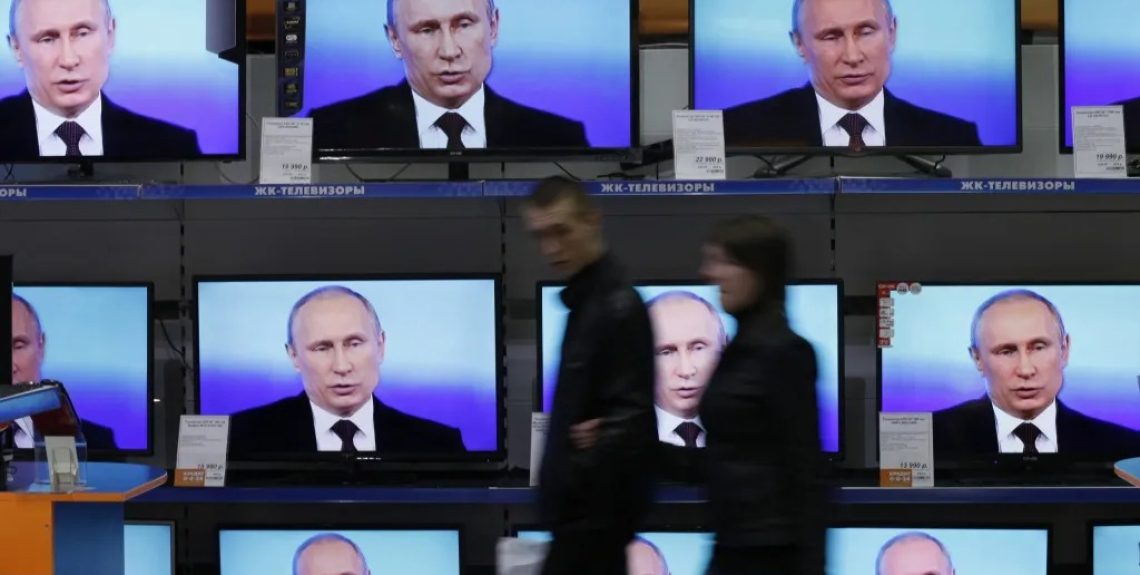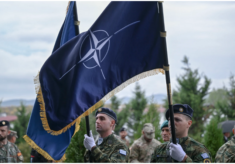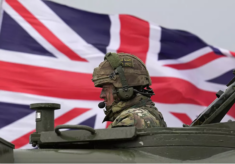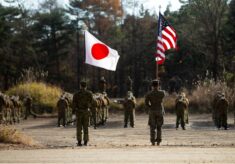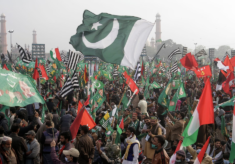One wise habit that was characteristic of the Cold War was the careful reading and listening to what enemy Soviet leaders had to say, trying to read between the lines. It was obvious that the Soviet Communist propaganda machine turned at full speed, but among the umpteenth repetition of a media spin one could discern intentions and trends.
Today even the internal political debate has often degraded in democratic countries to unprecedented levels: verbal aggression, alternative truths, systematic dismissal of diverging positions, savage defamation, etc. One should not be surprised that these vile tactics are also employed in the international debate from any quarter, but if one is facing an adversary with whom the double instruments of deterrence and dialogue must be used, turning a deaf ear is a mistake that can be paid dearly.
For this reason, it is useful to listen directly to a number of positions that have emerged in Russian newspapers and television broadcasts in the wake of repeated alarms of an impending invasion of Ukraine since three weeks.
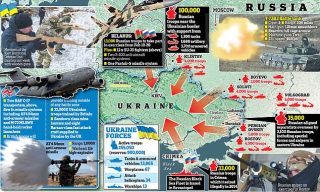
“The US State Department has inaugurated a new principle of both law and journalism. It is enough for them to declare something for it to be true. It is not necessary to prove it. If they claim to have overwhelming intelligence evidence that the Russians are preparing for invasion, just believe them”.
“As far as intelligence is concerned, we should also ask ourselves about the meaning of this word, as there is nothing intelligent in declaring falsehood, or in declaring something that one is unable to prove. Are those who disseminate, feed and create false news more intelligent, because they have a direct advantage, or are those who do not believe in it more intelligent because there are no elements, sources and evidence to confirm them?”
“We live an age of suggestions. In Western media democracies, the role of what is perceived is often distant but more important than the reality data. The reality is what happens today and what happened yesterday, but the whole Western establishment is committed to predicting and anticipating what will happen tomorrow and gives it for sure. A bit like in meteorology, the perceived temperature is different from the real one. In the West they measure one thing but feel another, and they pretend that all the others feel the same”.
“In Russia at all levels are declaring that there is no intention of invading Ukraine and yet nobody believes us. Why should Russia declare one thing and then do another? does it mean that in the West this can be done?”
“Why the West has decided that Russia cannot be trusted? But why then should Russia trust the West, if on the expansion of NATO, the security guarantees of the European continent, on energy supplies and long-term contracts, on sanctions, on the freedom of the press of Russian newspapers abroad, on the rights of Russian minorities in the countries of the former Soviet Union, including Ukraine, on the expulsion of diplomatic personnel, and many other dossiers, Russia receives not only unsatisfactory answers, but all one-sided ones that barely some of them are treated symmetrically, Russia is again accused of having adopted measures that the West can afford to take but Russia cannot”.
To overcome the conundrum, the Russian people, observers, analysts and politicians, now take it with irony, failing to understand why there is all this need to make a great media hype about an event that is not happening.
“Between adult and sovereign peoples, it would be enough to talk to each other and agree on what to do”.
“Americans want to rule everywhere: in the UN, in the G20, thinking it is a G7, in NATO as well as the Monetary Fund or the World Bank and the WTO, in Europe, Latin America, Asia and Africa. The other states should stay at home and under the conditions dictated by the Americans”.
“Western politicians and journalists would not know what to talk about if they didn’t talk about Russia every day. Russia is in the news; it is scary and attracts attention. This in itself is a result”.
“The United States and NATO are making a huge mistake, they are distancing Russia from Europe and bringing it closer to China”.
“Europeans do not realise the economic damage caused by sanctions on their own economies and the tightening of relations with Russia”.
“The results of the Second World War cannot be called into question”.
“If Russia does not invade Ukraine, what is the West doing? Stop NATO expansion, lift sanctions, authorise Nord Stream 2? Perhaps none of all them. So, what do we gain?”
The latter are reactions more or less ironic and emotional, but what emerges from these media soundbites? Behind some nationalistic quips, the feeling that: the relationship between Russia and the West is skewed and deeply distrustful; that adversarial intelligence is no more an authoritative knowledge to sort out difficult crises (as for instance in the Cuban crisis) and that only determined pressure may change this situation.
It is against this backdrop that Putin has carefully prepared the visit to Beijing, charging it with very ambitious meanings in the economic sphere and the political one (Taiwan, One China policy, SCO and the joint declaration on a new world order and multilateralism). Apparently, the ultimate goal is to come to an agreement, implement the Minsk Agreements and let the Russian security needs be recognised on his own terms.
Roberto D'Agostino
Executive and Italian Honorary Diplomat based in Russia, expert in Government Relations and Russia’s domestic and international affairs. Graduated in Oriental Studies in Italy, he specialised in Middle East and Soviet Studies in Cairo, Moscow and New York

